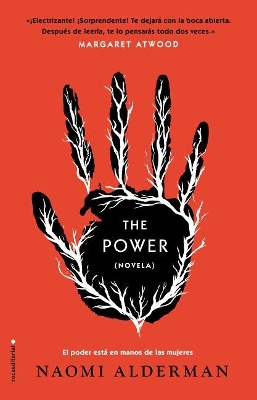Reviewed by gmcgregor on
Alderman explores this new world through four people: Roxy, the daughter of a British crime boss, whose Power is exceptionally strong; Allie, an abused teenage foster child who turns the voice she hears in her head into a new religious movement; Margot, an ambitious politician; and Tunde, the only man, a Nigerian journalist chronicling the changes in the world since the Power emerged. There's chaos, initially. No one knows what to do, what it all means. But things change quickly, all the way from men needing to learn how to protect themselves against violent women, to women dominating the military, to women toppling oppressive regimes. Eventually the storylines all converge in a fictional Eastern bloc country, now ruled by a woman as a dictator, that's the center of a proxy war between the powers-that-be in the old world against those of the new.
This is a fascinating idea to consider, how the world would change if something like what Alderman describes happens. And I think the failure of the book (as you can see from my rating, I didn't think it was especially good) comes from trying to capture too much. Roxy and Allie's perspectives dominate the book, and while I understand why Alderman included Tunde, to give an idea of what it would be like to come of age as a man in the world as we know it and live through the way it changes, I think Margot's storyline was weak and could have been cut to develop Tunde better. There's some good characterization going on with Roxy and Allie (particularly the former), but it's inconsistent, and it seems almost like Alderman was so excited to really dig into what she thought might happen in her new world that she didn't really think about the people who would be living in it beyond broad strokes.
That being said, it's an effective exploration of the way that power corrupts. At first, many women lash out at men in revenge for the ways they themselves have been hurt, which is an understandable reaction. The reader expects it to settle down after a while, after some wrongs have been righted, but it doesn't. Women begin to objectify the men around them, use their superior position to commit emotional and physical violence against them. While it's easy, living in the world we do live in, to imagine that women would wield large-scale power more effectively and humanely than men have and do, Alderman punches through that fantasy by remembering that women are, after all, human, and human beings do not have a great track record when it comes to the way we mistreat each other when given the opportunity to do so. I do think that as a novel, there are significant weaknesses, but as a piece to engage with intellectually, there's a lot to think and talk about here.
Reading updates
- Started reading
- 24 December, 2017: Finished reading
- 24 December, 2017: Reviewed
